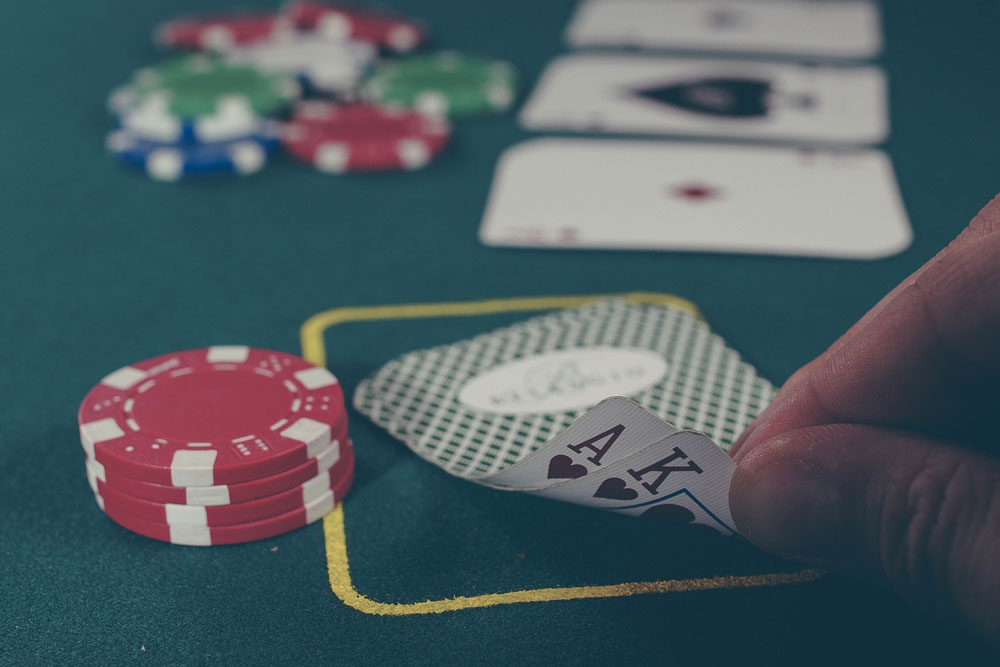Signs You Have A Gambling Addiction
Published on December 15th, 2020
Updated on January 3rd, 2024

Gambling addiction occurs when people struggle to control or moderate their gambling habits. While gambling can be just a hobby, many people can become addicted to gambling. A person may have a gambling addiction when it interferes with their quality of life.
A person may have a gambling addiction if the following are affected by gambling habits:
- Career
- Family
- Finances
- Social life
- Health
People who are struggling with gambling addiction are not necessarily gambling to make a profit. Winning can create a sensation that is similar to a high. It causes the reward centers of the brain to activate, which can cause a euphoric sensation. This, along with other components, can cause a person to become addicted to gambling.
Sponsored by

Choose a therapist to work with and start healing with 20% off from BetterHelp.
Click HereWarning Signs of Gambling Addiction
Gambling addiction does have symptoms that are similar to other types of addictions. Such addictions may include:
- Alcoholism
- Video game addiction
- Internet addiction
- Addiction to drugs
These symptoms can be powerful. They are difficult to overcome. Gambling addiction can be particularly challenging because it can be difficult to identify early on. An activity that can start as a hobby or game can turn into addiction without an affected person realizing it right away. This is why it is important to know the symptoms and warning signs of gambling addiction.
Warning Signs of gambling addiction include:
- Neglecting responsibilities to be able to gamble
- Preoccupation with gambling tactics
- Unsuccessful attempts to stop or control gambling habits
- Gambling to seek a high of winning (and needing to gamble more and more to feel that high)
- Using gambling as a method of coping with stress or emotional struggle
- Struggling to stop gambling once started
- Chasing money that has been lost while gambling to break even
- Hiding, minimizing, denying, or downplaying gambling habit
- Having strained relationships or career consequences due to a gambling habit
- Missing work due to gambling
- Borrowing money from others to support their gambling habit
- Hiding financial loss or debt incurred from gambling
Risk Factors of Gambling Addiction
While anyone can develop a gambling addiction, some factors may put a person at higher risk. Addiction of any kind can happen to a person unexpectedly. It is important to understand what factors can cause an addiction to gambling and catch the symptoms early.
The factors that can raise the risk of a person becoming addicted to gambling include:
History of Addiction and Substance Use
People who suffer from another form of addiction or substance use are at higher risk of suffering from gambling addiction. Addiction comes from a number of personality traits. People who suffer from addiction tend to be impulsive. They tend to not practice consequential thinking. they also may not take measures to avoid problematic situations.
Addicts also tend to be thrill-seekers. They will chase a high through acting impulsively and irresponsibly. They become dependent on the high. In the case of a gambling addict, the habit of gambling often comes from the feeling of the high felt when winning money.
People who struggle with addiction also use their vice as a method of coping with stress. Good stress may be rewarded with addictive behaviors, and bad stress uses addictive behaviors as a means to cope or self-soothe. With gambling addiction, stress may be managed by seeking a high that comes from winning. Winning may give a temporary sense of comfort of confidence, which worsens the habit.
Poor Decision-Making Skills
People who suffer from gambling addiction tend to have poor decision-making skills. They struggle to use consequential thinking and tend to act impulsively. This causes their judgment to be impaired.
A gambling addict may understand that their addiction is causing consequences. They may also justify their gambling with the potential to make great winnings and save or improve their financial situation. With this pattern of thinking, a gambling addict fails to see the damage they cause by chasing winnings. Their judgment and ability to make healthy decisions are also affected by their drive to seek a euphoric high. This high is caused by a release of dopamine in the brain.
A Family History of Gambling Addiction
A person is at higher risk of developing a gambling addiction if they have a family member who also suffers from a gambling addiction. This is due in part to a genetic component that motivates addictive behaviors. It is also due to modeling during upbringing.
People who grow up with adults or siblings who also suffer from gambling addiction have addictive behavior modeled for them. This modeling normalizes addictive behavior. It makes the behavior seem like not a big deal or problematic for children as they grow into adulthood.
Treatment for Gambling Addiction
Gambling is a challenging addiction to recover from, but it is possible. For the highest potential of recovery, a gambling addict should seek treatment early on in their addiction. This is the case for all addictions, and like all addiction treatment, recovery is a lifelong process.
Treatment for gambling addiction requires a number of components. A gambling addict in recovery will be expected to remain abstinent from gambling throughout treatment. Many recovering gambling addicts choose to stay away from any form of gambling throughout their lives.
Along with abstinence, a person who is recovering from gambling addiction will also need to seek mental health services. They will need to meet with a mental health professional to develop a treatment plan. For treatment, the addict in recovery may attend group and individual counseling sessions. They may also be referred to consult with a psychiatrist, who would determine if medication could be helpful.
Sponsored by

Find an affordable therapist online with 20% off from BetterHelp.
Click Here






Leave A Reply